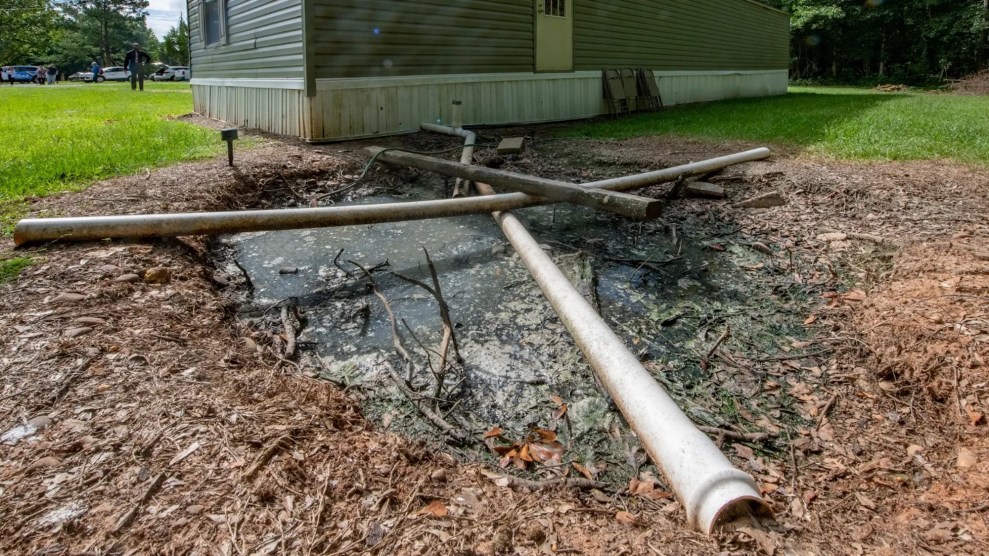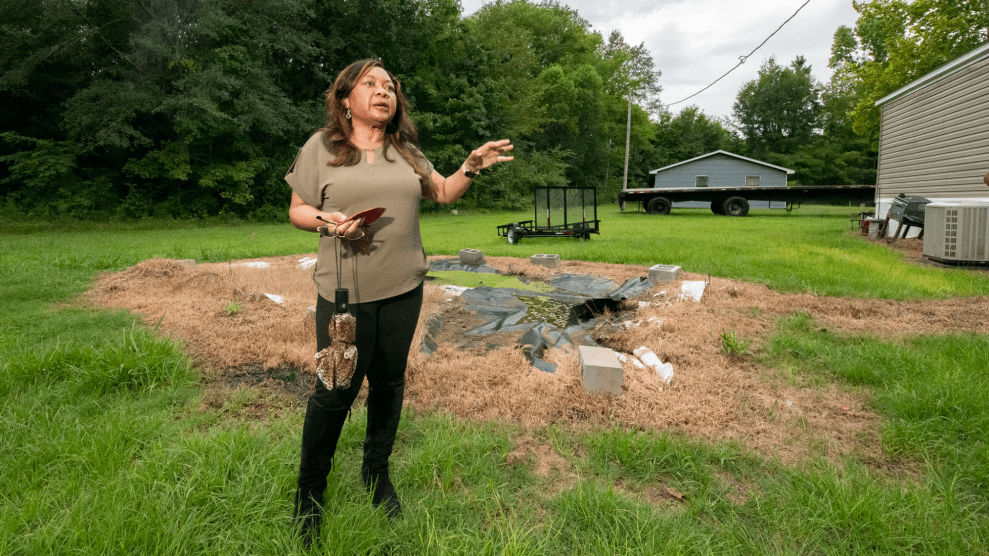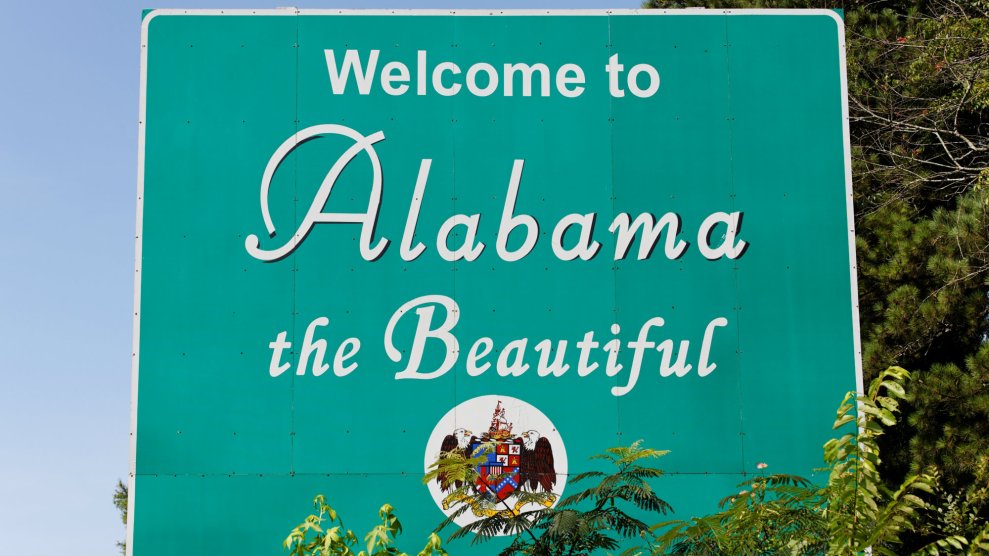
President Joe Biden with Catherine Coleman Flowers, founder of the Center for Rural Enterprise and Environmental Justice, at the White House.Bonnie Cash-POOL / ZUMA
This story was originally published by Inside Climate News and is reproduced here as part of the Climate Desk collaboration.
Catherine Coleman Flowers has seen it all firsthand.
She’s been to homes across the state where Alabamians can’t flush their toilets, the result of failing or nonexistent wastewater infrastructure.
She can tell you about the families in the state’s Black Belt whose children suffer from increased risk of pathogenic E. coli due to exposure through well water to raw sewage from failing wastewater systems nearby.
“Many people live with straight piping, which means when they flush the toilet, it’s not going through any kind of treatment system,” Flowers said. “Children are playing around it.”
It’s that kind of on-the-ground knowledge that Flowers, a Lowndes County native, has brought to her role on President Joe Biden’s Environmental Justice Advisory Council, bringing national attention to issues impacting Alabamians.
On Tuesday, Flowers joined Radhika Fox, the EPA’s assistant administrator for water, in announcing the expansion of a federal program aimed at providing as many as 150 communities with the technical assistance needed to begin addressing wastewater access issues.
The program initially served 11 pilot communities, including White Hall, a small town halfway between Selma and Montgomery.
“It’s also on a failing septic system,” Flowers told reporters Tuesday morning. Flowers worked with officials at every level of government to identify solutions to the community’s wastewater woes. The technical assistance provided through the Biden Administration pilot program led the community to secure $450,000 in federal dollars to aid in that effort.
“We could not imagine that this would happen and happen so fast,” Flowers said.
Now, the Closing America’s Wastewater Access Gap Community Initiative is expanding to up to 150 communities, which will be selected on a rolling basis, according to Fox. Interested communities can request assistance by completing the WaterTA request form, according to the EPA. There is no deadline to apply.
Rep. Terri A. Sewell (D-Ala.), who represents the Black Belt in Congress, said that access to adequate wastewater infrastructure is a basic human right, praising the expansion of the program announced this week.
“Unfortunately, too many Alabamians in the Black Belt have suffered from generations of disinvestment in basic water infrastructure,” Sewell said. “Today’s announced expansion of the Closing America’s Wastewater Access Gap Community Initiative is an important step toward correcting this injustice.”
Communities’ efforts to access various pots of federal funding to address wastewater concerns haven’t always been successful, particularly when significant portions of federal funding must be delivered through state agencies.
In March 2023, for example, Flowers’ Black Belt-based nonprofit, the Center for Rural Enterprise and Environmental Justice, filed a federal civil rights complaint against the Alabama Department of Environmental Management over allegations that the agency discriminates against Black residents by preventing residents from accessing federal dollars to improve access to onsite sanitation in violation of federal law. Federal officials are currently investigating the complaint, which state officials have disputed.
Fox told reporters on Tuesday that the EPA will help local communities engage with state-level officials on the front end of applications for federal dollars, potentially making it easier for them as they go through the often-competitive funding process.
“I think that’s why we’ve had such a high success rate, where over seven of these communities are already in the pipeline to receive servicing funding dollars from the state,” Fox said.
Flowers emphasized that advocates will continue to use whatever tools they can to make sure the sanitation issues facing Alabamians are adequately addressed.
“That’s the role that we play as a non-government entity in working with people in the communities who are experiencing these problems and making sure their voices are lifted up and heard,” Flowers said, adding that her organization will continue to engage state and local officials. “We’re still taking advantage of those tools as advocates and activists to make sure that the right thing is done, and that it is done in an equitable way.”















